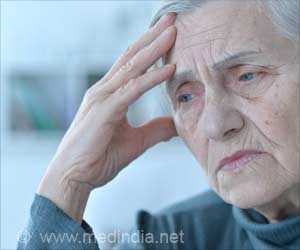When patients were informed that eating disorders can affect their reproductive health, they felt that it made them feel worse than helping them get out of it.
Highlights
- Those with eating disorders (EDs) should have more input into their treatment and how medical information is communicated.
- Women in treatment for eating disorders need //precise information about the effects of eating disorders on fertility.
- Warnings about their reproductive health and the related assumptions about gender, actually aggravated their condition.
Dr Holmes said: "Medical intervention does not recognize the complexities of the individual causes of ED, nor are treatment options delivered on a case-by-case basis. Invariably, treatment regimes look at EDs as a 'problem' to be solved, rather than considering the myriad reasons the individual may be in eating distress or body distress."
Nowhere is this more evident than when it comes to medical professionals discussing reproductive health with women in treatment, said Dr Holmes.
Alert on Fertility Among Patients With Eating Disorders
The study looked at 24 female participants who were mainly recruited via Beat, the UK's eating disorder charity. They came from different regions in the UK and ranged in age from 19-46, with a mean age of 26. All the participants had received a diagnosis of an ED - including anorexia nervosa, bulimia nervosa and eating disorder not otherwise specified - and included some women who had children.
One participant said: "It was sort of like, you might or you might not [have fertility problems] - it is just left hanging over you."
Blackmail: Participants in the study referred to the information given by healthcare professionals about EDs and fertility as "blackmail", "shock tactics", "scaremongering" or "ammunition".
Dr Holmes said: "These terms suggest a conception of treatment as a site of conflict or battle that unfolds within unequal relations of power: it is the health professionals who are seen as being in a position to 'scare', 'threaten' or 'blackmail' ED patients over the perceived state of their future reproductive choices.
"Health professionals may have good intentions in warning someone with an ED about their fertility. But from the point of view of the participants, they were generally not seen as a helpful, caring or compassionate aspect of treatment."
Participants said they found information about the possible effects of their ED on their reproductive health perpetuated the sense that the ED behaviors were somehow a product of choice, increasing their feelings of self-blame and self-loathing.
Women Fell More Worried
The research findings also draw attention to the ways in which the cultural aspects of EDs - such as the fact that women are over-represented as ED patients - are poorly understood in treatment.
Fertility is itself bound up with particular ideas about 'normal' womanhood, so some ED patients said warnings about their reproductive health and the related assumptions about gender, actually exacerbated their condition.
As one patient who was unsure about wanting children in the future said: "It was another thing feeding into the idea that something was wrong with me. Because these expectations [of motherhood] were everywhere - in treatment, and mentioned by friends and family - I didn't talk about these feelings, even though they are probably one of the main reasons I got ill in the first place."
How To Convey The Message?
The study showed that most participants thought it was important to have access to information about possible risks to reproductive health associated with EDs, but thought the ways of this being delivered could be improved.
Dr Holmes said medical professionals should enable patients to make informed choices about how much they want to know about EDs and fertility, and that such information should not be delivered as a warning - with the attendant power relations that poses.
Dr Holmes said: "Medical professionals need to be as specific as possible about what the risk to fertility actually is, as well as being candid about the fact that the evidence itself is often uncertain and unclear.
"The bottom line is, people with EDs are all individuals, with different reasons for getting ill and different reasons for getting better or not. By de-personalizing a person with ED as 'the patient', the primacy is placed on the ED, rather than the person behind or within the experience of eating distress."
Reference
- Holmes et al., 'Responses to warnings about the impact of eating disorders on fertility: A qualitative study.’ Sociology of Health and Illness (2017).
Source-Medindia














